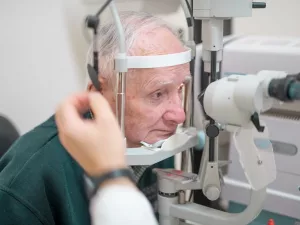
Let’s Get Real About Cataracts
Have you glanced at a street sign lately and realized you’re squinting more than usual? Or maybe you keep blaming your “smudged” glasses, but, truth is, nothing helps. If that’s you, you’re definitely not alone. (Trust me, my dad called the optometrist after he bumped into a mailbox… twice.) By age 80, more than half of us have clouded our way straight into the “cataracts club.” Not exactly the kind of club we dream about joining—yet, here we are!
But, you know what’s a relief? Living in an age where there’s actually a clear fix. For a lot of us, that fix comes with another big question: does Medicare cover cataract surgery? If you’re like most, you’ve heard everything from “Sure, it’s covered!” to “Actually, only sometimes…” Yeah. Not helpful. Let’s untangle it together—no stuffy medical jargon, promise.
When Life Gets Blurry (And Not In The Fun Way)
Cataracts sneak up like that toy you step on in the dark. Not dramatic… at first. Things just start looking… dim. A fog creeps over your world. For me, it started when my grandma couldn’t thread her needle (she’s the queen of emergency sock patches—seriously).
But it isn’t just “old eyes.” Sunlight, some medications, even a past injury can put you in line for cataract surgery. Still, let’s be honest: most of us land here just because we’ve clocked enough birthdays. Happens to the best of us!
So how do you know it’s time?
- Night driving feels like staring into a headlight factory
- Words on the page… are just too fuzzy
- Colors—bleh, all washed out
- Light halos or weird double vision
If your story sounds like this, you might be wondering, “Alright, so if my doctor says I need the surgery, does Medicare cover cataract surgery for real?” (Hang tight. We’re getting to the good part.)
The Big Question: Does Medicare Step In?
Short answer? Yes—if it’s medically necessary. That’s the magic phrase. If your vision’s interfering with the basics—like driving, reading, or watching those “how to pickle everything” shows (guilty!)—and your doctor gives the green light, Medicare steps in to help [7][1][15].
You don’t get coverage for routine check-ups or super fancy lens upgrades just because you want ’em (I know, a bummer. Those high-tech lens commercials kind of got my hopes up, too). But the basics? Covered. Here’s how it usually shakes out:
What’s Actually Covered?
- The surgery itself, whether it’s old-school or laser-style
- A standard intraocular lens implant—the “vanilla” version
- Pre-surgery and post-surgery exams (because, let’s be real, one check-up is never enough)
- Anesthesia, facility fees, and a sweet bonus: a single pair of glasses or contacts afterward
Want more nitty-gritty? You can always double-check does medicare cover cataract surgery for the finer print, but this is the gist for 2025.
Medicare’s “Yes” List:
| Service | Covered? |
|---|---|
| Standard lens implant (monofocal IOL) | Yes |
| Laser-assisted or manual surgery | Yes |
| Pre/post-op exams, anesthesia, facility | Yes |
| One pair prescription glasses/contacts after | Yes |
| Premium lens (multifocal/toric) | No – you pay upgrade |
| Extra “designer” eyeglasses upgrades | No |
(Table worth printing and sticking on your fridge, right?)
How Much Will I Pay?
This is where folks get nervous. But don’t panic: Medicare Part B typically covers 80% of the basic, medically necessary cataract surgery after you’ve met your yearly deductible (which is around $240 right now) [3][7][15]. So, you pay the other 20% coinsurance. Picture it: if your whole surgery is $2,000? You’d pay $400 plus that deductible.
If you’ve got a Medigap plan, it might eat up that remaining 20% for you. (Worth every penny, in my grandpa’s opinion.) Want the bells and whistles—like a lens that acts like bifocals or astigmatism correction? That’s when your costs jump. Medicare just covers the “standard,” not the Tesla of eye lenses [15][9][11].
Let’s Do Some Math
| Total Cost | Medicare Pays (80%) | You Pay (20%) |
|---|---|---|
| $2,000 (typical basic surgery) | $1,600 | $400 + deductible |
| $4,000 (premium extras!) | $1,600 (the standard part) | $2,400 (for premium upgrade!) |
Some folks are surprised to learn that where you have surgery matters: hospital outpatient, surgery center, or doctor’s office can all affect the total bill [1][11][15]. And, seriously, if your doc is out-of-network? The price tag can go up—so always double-check they’re Medicare-approved.
Just had a friend—let’s call her Sandy—who planned on laser surgery but nearly fainted when she found out her chosen upgrade wasn’t covered. She called her Medicare rep and, boom, sorted it all out before signing anything. (Worthy advice: Call before you commit—trust me.)
Breaking Down Medicare Plans
I get it—Medicare seems like alphabet soup. But here’s what matters for cataract surgery:
- Original Medicare (Part A & B): Covers most surgeries, but mainly Part B since cataract surgery is outpatient.
- Medigap/Medicare Supplement: Can cover leftover costs Medicare doesn’t pay.
- Medicare Advantage (Part C): These can add extras like vision perks or cap your out-of-pocket. But rules and costs can vary, so call your plan and ask.
Prescription drops for surgery? That’s Part D (gotta juggle all four letters, I know). If you’re uncertain about your plan, I recommend doing what my neighbor Jerry does: calls his provider every single year just to check—”I like surprises… but not from my insurance.”
By the way, if you’re getting lost in the details, the friendly guide over at does medicare cover cataract surgery pulls together the basics for each plan. Super handy, even for seasoned pros.
What About Advanced or Deluxe Options?
This is the part no one ever mentions in those “you’re covered!” ads. Medicare pays for the basics—so, vanilla ice cream at the parlour, not the double-fudge sundae with extra toppings. If you’re dreaming about lenses that let you toss your reading glasses (like those multifocals, torics, etc.), you’ll be shelling out extra. Sometimes thousands more, per eye [9][11].
No judgment if you want the “upgrade.” But Medicare calls that “your treat, not a necessity.” If you’re on Original Medicare, that’s the gold rule. Medicare Advantage plans, sometimes, can sweeten the deal, so read your plan’s fine print or call your member services and ask, “Will you cover more than my friend’s plan did?” (Hey, it can’t hurt.)
What About After Surgery?
Once you get home—patch and all—Medicare doesn’t just vanish. They’ll cover one pair of basic prescription glasses or contacts. Not the fancy $400 frames, but something to keep you seeing straight while you heal [1][7][15].
You’ll have covered follow-up visits and care for the first three months post-op. After that, you’re basically graduated. (If you still need more visits, that’s when you might start paying again, or need to check your supplement or Advantage plan.)
Quick Story:
My aunt Joyce had her surgery last spring. She called me, giggling because her “new” glasses from Medicare were kind of old-school, but, for the first time in years, she could see all the colors in her garden. (Not bad for free root veggies and free post-op glasses, right?)
If you’re curious what others have navigated, you can also dig into does medicare cover cataract surgery and compare real stories. It’s good not to feel alone in the process.
Tips To Save (and Stress Less)
- Always get written confirmation that your surgery’s medically necessary (it sounds obvious, but insurance loves paperwork).
- Call your plan before surgery. Ask, “What’s my total out-of-pocket?” Get it in writing if you can, especially if you want optional upgrades.
- Stay in-network and at Medicare-approved locations to avoid costly gotchas.
- Ask about payment plans for your share—they’re surprisingly common!
- Bring along someone you trust when talking with the doctor—extra ears catch bonuses (and hidden costs).
You’d be surprised… even with all the health talk out there, not everyone knows these simple prep moves can save you a headache (and a few hundred bucks).
Together Toward Clarity: Wrapping It Up
Cataracts might throw a cloud over daily life, but you’ve got more power (and more help) than you realize. If you qualify—and most folks on Medicare who need it do—you’ll get the basics of cataract surgery covered. Think of it as Medicare picking up most of the tab so you can get back to the things you love. There might still be some out-of-pocket, but you’ll know ahead of time. (No one loves a surprise bill, right?)
If you’re facing blurry days or your doctor’s even hinted at cataracts, go ahead—ask those questions, do a little digging, call your plan. The path to sharper vision isn’t as murky as it might feel right now. Who knows… maybe your own post-surgery story will be about spotting a cardinal out your window instead of just a brownish blob.
Ready to take the next step? Set up an eye exam. Or, if you’re already there, check those insurance details before the big day. Your future self (and your friends who need advice) will thank you!

























Leave a Reply
You must be logged in to post a comment.